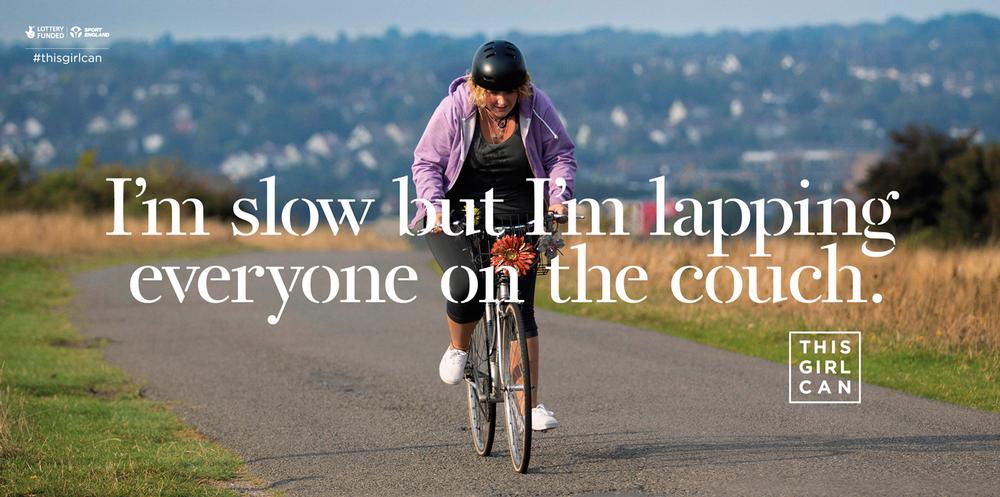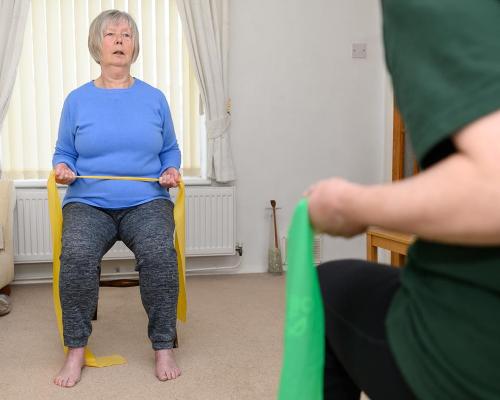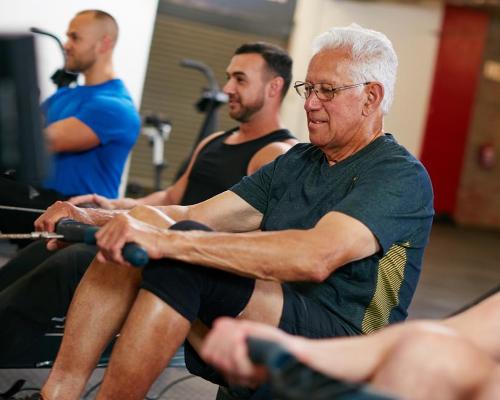features
CONSUMER RESEARCH: We’re wrong about how much activity people do, and it affects our own exercise habits
We’re wrong about how much physical exercise people do – and it matters. Ipsos Mori’s Hannah Shrimpton reports

During the summer 2012, Olympic fever gripped Britain. It was hoped this would be a starting pistol for the public’s own drive to get moving and move more often.
Yet three years on, there has been little improvement. The proportion of adults hitting the recommended amount of physical exercise in England has hovered just below 60 per cent since 2012, with only marginal improvement according to Public Health England (PHE) figures. More worryingly, there’s only been a very slight change in the proportion who do little to no exercise at all. Classed as ‘inactive’, two in five adults still do less than 30 minutes of at least moderate intensity exercise a week in bouts of 10 minutes or more.
And Britain is not alone. The World Health Organization (WHO) identifies inactivity as the fourth leading contributory factor in global death rates, accounting for 6 per cent of deaths worldwide. On the flip side, physical exercise is associated with a wide range of health benefits including reducing the risk of serious illness such as heart disease, diabetes and cancer. Boosting the painfully slow improvement in activity rates is crucial for public health, bodies both in the UK and internationally.
Adhering to the norm
One option is to try and ‘nudge’ the reluctant masses towards healthier behaviour. Social norm theory presents one possible means of doing so. This suggests we can harness our perceptions of what’s ‘normal’ to shift behaviour. Like dominoes, our behaviour tends to fall in line with what we think others do (what social psychologists call ‘descriptive norms’) and what we think they approve or disapprove of (or ‘injunctive norms’).
For example, faced with a simple choice, you may pick a full restaurant over an empty one (descriptive norm) or choose a restaurant that sources fair trade food over one that doesn’t (injunctive norm).
Applying this simple illustration to choices around physical exercise, it may well be that if health clubs overflowed onto the pavement, or if exercise were seen as a moral imperative, we could well see physical activity levels increasing much faster.
Social norms matter beyond influencing one-off choices about where to eat or exercise. Perceptions of what others do and approve of are an important influence across the country, and even internationally. Ipsos Mori’s international study, conducted for the Behavioural Exchange conference in London in September 2015, looked at the public’s perceptions of different behaviours – from tax avoidance to pulling sickies.
International consensus
One particularly striking finding was the consistency across six different countries – UK, Germany, France, US, Canada and Australia – when considering healthy and unhealthy behaviour. All countries surveyed thought over-indulging on sugar to be the norm – the average guess is that two-thirds eat over the recommended daily amount. We know in the UK that this is a massive over-estimation – we think seven in 10 eat more than the recommended daily limit, when it’s ‘only’ 47 per cent (see Figure 1).
Likewise, the perceived social norm around physical activity remains relatively untouched by country context: people in every nation included in the survey massively under-estimate how much exercise their countrymen really do. The worst offender is Germany, where the perception is that just four in 10 do the recommended amount of physical activity, when the reality is that over seven in 10 are hitting the target (see Figure 2).
Harnessing norms
So our health habits are bad, but not as bad as we think. And due to the power of social norms, that misperception could actually encourage the negative behaviours. In fact, there’s a real risk that well-meaning communications on the scale of the issue could actually reinforce the very behaviours we’re trying to shift.
American psychologist Robert Cialdini has long warned about the dangers of inadvertently normalising negative behaviours in this way. It’s a really tough line to tread: campaigners want to draw attention to the issue of physical inactivity and get a number of different audiences focused on it – from the public and the media to policymakers and politicians. But the problem is that, by highlighting how commonplace the negative behaviour is, you normalise it: there’s a message lurking under the surface that everyone is doing it.
Cialdini argues that, in order to unleash the power of the norms, you need to be paying attention to both the descriptive norm (show that the positive behaviour is widespread) and the injunctive norm (show that everyone ought to be doing it).
Successful campaigns should therefore focus on the desirable of aspects of a given behaviour and how all sorts of different people are doing it. This is partly why Sport England’s ‘This Girl Can’ campaign has garnered such positive attention and awards. It’s too early to assess its impact on actual activity levels, and there have been various objections to its execution – The Guardian argued the campaign objectified women and was about sex, not sport – but at its heart is the aim of normalising and positively displaying a behaviour that people (wrongly) think is a minority pursuit.
Are you ashamed?
But there are further challenges, as norms work differently for different issues. Our survey suggests a splintering of opinion when looking at sugar consumption compared with physical activity. We distance ourselves from the rest of our sugar-guzzling populations – for example, while we believe seven in 10 people in the UK over-indulge on sugar, only 44 per cent of us admit to doing this ourselves. Yet we have no problem saying we’re as inactive as everyone else. On average, people in the US think only 42 per cent do the recommended amount of exercise and 44 per cent say they do the right amount too.
One possible explanation of the difference here could be shame. The British public seem to be more ashamed about their sugar consumption than they are about the running shoes collecting dust at the back of the wardrobe. From a behavioural science perspective, campaigns focusing on different types of health behaviours may need to take a different tack – to account for this level of shame.
Another possible explanation could be our relatively poor judgement on what counts as the recommended amount of exercise. Most comprehensive surveys on levels of physical activity still rely on self- assessment. However, evidence from the last objective measure of physical activity in England (the Health Survey for England, carried out in 2008) suggests we may have a warped view on the amount of exercise we actually do. The survey used accelerometers to collect data on the frequency, intensity and duration of physical activity undertaken by a sample of adults over seven days. The data revealed that only 6 per cent of men and 4 per cent of women actually met the recommended targets for physical activity – a shocking six times lower than the self-reported rates measured in the same year.
This strongly suggests that the reality of activity levels could be much worse than thought – by the public, campaigners, the media and public health bodies. Rather than being pessimistic, we could actually have a far too optimistic view of the norm. This could have implications for the way we go about tackling levels of physical inactivity.
To use norms to nudge people into a more active lifestyle, we must communicate that exercise is a normal, socially desirable pursuit. The power of norms is significant – they carry weight. Used correctly, they could help people lose some of theirs.
Figure 1
SUGAR CONSUMPTION: PERCEPTION vs REALITY
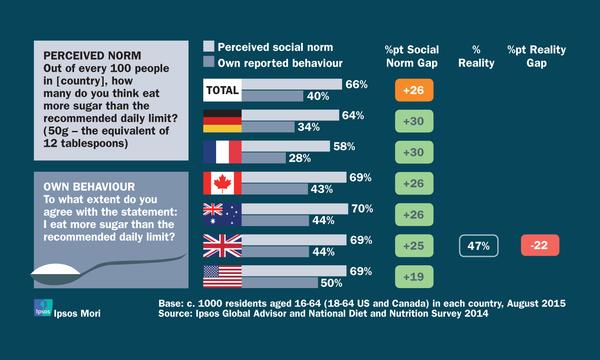
Figure 2
PHYSICAL ACTIVITY: PERCEPTION vs REALITY
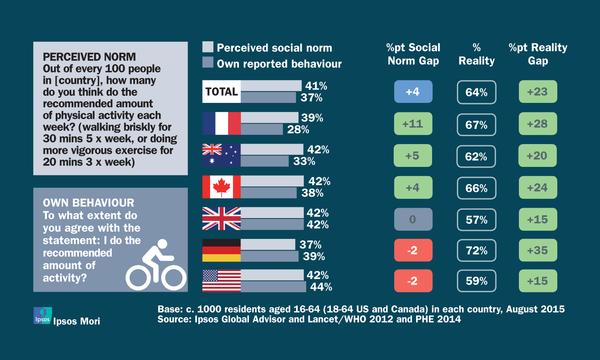
About the author
Hannah Shrimpton is a senior researcher at Ipsos MORI’s Social Research Institute – a leading UK-based market research company that supports politicians and decision-makers through analysis of a range of societally relevant topics, including the healthcare field.
Email:[email protected]
Twitter: @h_shrimpton
Web: www.ipsos-mori.com
